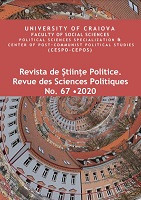Economic tools for shaping order in Central Europe in Austria's foreign policy
Economic tools for shaping order in Central Europe in Austria's foreign policy
Author(s): Agnieszka Kisztelińska-WęgrzynskaSubject(s): Economic policy, International relations/trade
Published by: Editura Universitaria Craiova
Keywords: Modern Austria; Neighborhood Policy; Bruno Kreisky; Central Europe;
Summary/Abstract: Austria's political and economic interest in the countries of Central Europe was diverse. Neighborhood policy was interpreted as "a small relaxation that without direct union with the USSR could have contributed to relaxation between East and West." In initiating economic cooperation, it was assumed that the economic stability of Eastern countries would be conducive to the implementation of the basic task of the SPÖ, which is maintaining full employment, would be an optical expression of Austria's neutrality and would contribute to alleviating the effects of Austria's unilateral economic links with Western countries, in particular with Germany. The assumption adopted in Vienna concerned the consent to undertake economic cooperation where it was profitable, but also while respecting the principles typical of the free market. At the beginning it was assumed that industrialization concerns only East Germany and Czechoslovakia. Over time, this approach has changed. Analyzing the foreign policy of Austria, research tools characteristic of the historian and political scientist's workshop were used. The method of analysis and synthesis was adopted. Additionally, the conducted research was supplemented with the institutional method (legal acts regarding the competence to create foreign policy and state treaties). A statistical method was also used to show the scale of trade.
Journal: Revista de Științe Politice. Revue des Sciences Politiques
- Issue Year: 2020
- Issue No: 67
- Page Range: 118-132
- Page Count: 15
- Language: English

